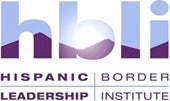|
|

|
|

|
|
|
|
|||||||||||
|
|
|
Mission
The Community College Leadership Academy at Arizona State University is dedicated to assisting community college institutions redefine their delivery of services to the escalating population of students from diverse origins and backgrounds by meeting the need for prepared staff. Purpose
The purpose of the Community College Leadership Academy is to provide leadership training to develop mid-level community college administrators (particularly persons of color and women) who want to serve this growing new majority population of students. Goals
The goal of the Academy is to develop proactive individuals who are future focused and flexible in program delivery to the new majority of diverse students by: á Providing professional development for those interested with a preference to persons of color and women á Providing information and skills about students of color á Providing assistance to community colleges in designing or redesigning so as to strengthen educational programs targeted to students of color. Academy Elements
What is CCLA? A. To provide knowledge and skill to mid-level community college administrators in the areas of instructional programs, learning styles, and support services to better serve students of color. B. Why is CCLA important? a. Growing diverse student body While we know through studies and pilot programs what works already these new programs need to be structurally integrated, not as currently done, add-ons. Additionally, the dynamics of
integrating new services, programs, and learning styles into an existing
structure is demanding and leaves little room for error. The CCLA will
concentrate on developing competency so as to create an organizational agent
for change. C. What it doesnŐt emphasize This is not centered on preparing individuals for promotion. Our philosophy is as an individual develops and shows capacity and competency in providing services to the new majority of diverse students, then such an individual will be sought after for greater responsibility and leadership roles. D. Benefits Indirectly- networking, recognition which leads to promotion/greater opportunity Directly- extended ed. credit, possible entry into a doctoral program For who? A. Open to all who want to serve this growing, diverse new majority population. However, the target groups are persons of color and women. B. The Demand The growing need to have persons of color and women represented at all levels, particularly in leadership roles. Women and persons of color are being placed in charge of
new programs to serve students of color, without adequate training in program
implementation, or mid-management knowledge, or understanding organizational
dynamics. |
|
Copyright © 2003 - Arizona State University - Hispanic Border Leadership Institute - Privacy Statement |
| Questions / Comments ? HBLI@asu.edu
|